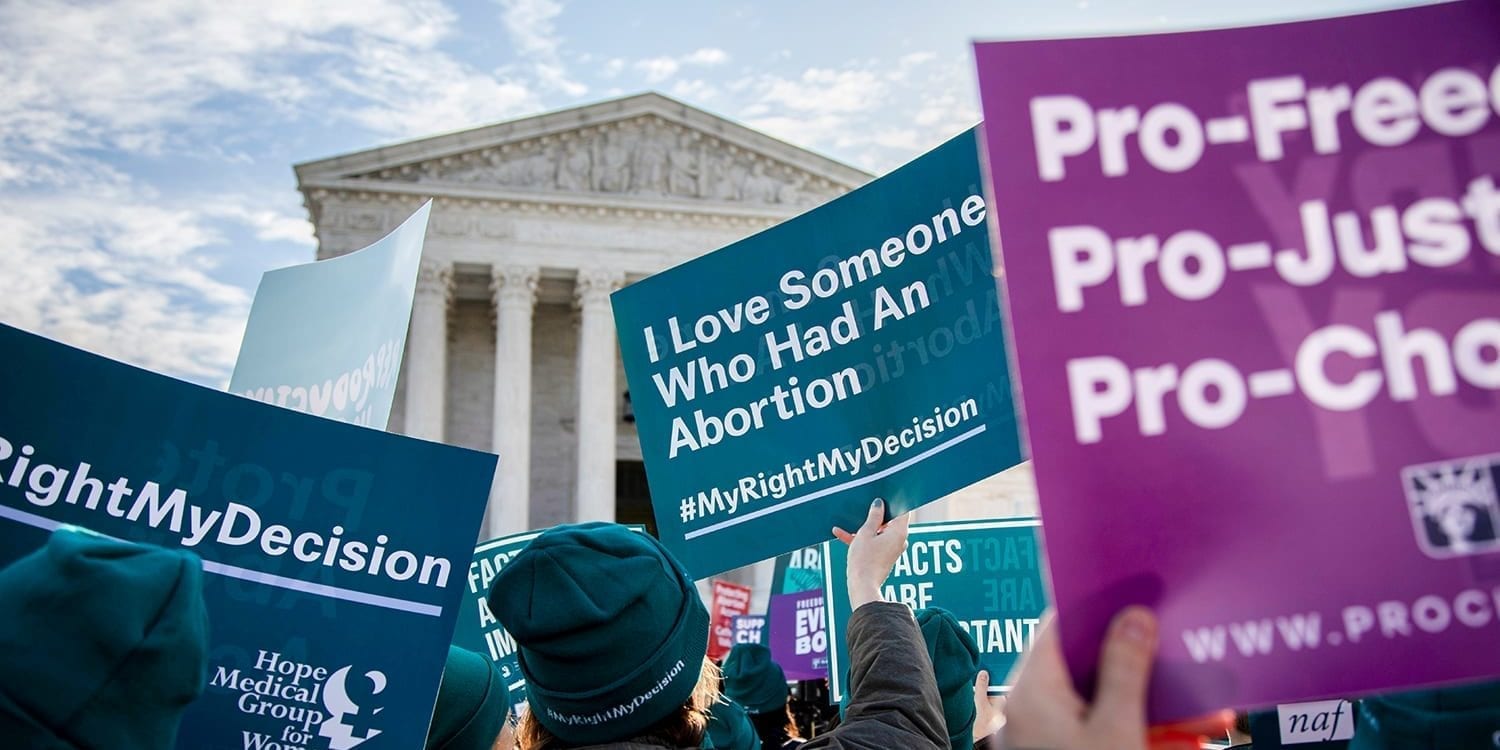Medical Emergency Exceptions to State Abortion Bans
Complaint Against Oklahoma Hospital for Denying Life-Saving Abortion Care
This administrative complaint argues that the hospital violated its obligations under the Emergency Medical Treatment and Active Labor Act by denying a pregnant woman life-saving abortion care.
Update: On October 5, HHS’s Center for Medicare and Medicaid Services declined to find an EMTALA violation by Oklahoma University Health.
On September 12, 2023, the Center for Reproductive Rights filed an administrative complaint with the Department of Health and Human Services (HHS) against an Oklahoma hospital on behalf of a woman who was denied abortion care despite experiencing a life-threatening pregnancy complication.
The Center’s complaint alleges that in refusing to provide her with the care she needed, the hospital violated the Emergency Medical Treatment and Active Labor Act (“EMTALA”), a federal law requiring hospital emergency departments to provide “stabilizing treatment” to patients experiencing an emergency health condition.
For the patient, Jaci Statton, abortion care was the appropriate “stabilizing treatment” for her condition. Although her OB/GYN advised Jaci that an abortion was medically necessary because she had a partial molar pregnancy—which can lead to severe bleeding, cancer, high blood pressure, preeclampsia and death—the hospital refused to treat her due to Oklahoma’s restrictive abortion laws. She ultimately traveled out of state to get the abortion care she needed, despite the risks to her health and life.
The Center filed this EMTALA complaint simultaneously with challenges concerning laws banning abortion in Idaho and Tennessee.
“Oklahoma has abdicated its responsibility to protect the health and wellbeing of pregnant patients,” said Rabia Muqaddam, Senior Staff Attorney at the Center. “We hope that HHS will step in to ensure that what happened to Jaci never happens to another Oklahoman.”
On October 5, HHS’s Center for Medicare and Medicaid Services declined to find an EMTALA violation by Oklahoma University Health. In response to the denial, the Center and Ms. Statton have called for additional public accountability and robust enforcement of EMTALA.
Legal Context
While Oklahoma bans abortion, in March 2023, the Oklahoma Supreme Court held that the state constitution protects the right to abortion in life-threatening situations and that doctors must be able to use their medical judgement to determine whether to provide an abortion when a patient’s life is at risk. However, abortion care remains inaccessible for most in the state, and doctors and hospitals are reluctant to provide care due to the criminal, financial and professional penalties they face.
The Center’s complaint argues that by denying Jaci abortion care, the Oklahoma hospital violated EMTALA, a federal law mandating that hospitals conduct an examination to determine whether an emergency medical condition exists, and if so, “provide treatment as may be required to stabilize the medical condition” or transfer the individual to another medical facility after the patient is stabilized. If the individual is not stabilized, EMTALA notes, the hospital may only transfer the patient if the individual requests the transfer or if the medical benefits of the transfer outweigh the risks.
On July 11, 2023, HHS issued guidance emphasizing that even in states with abortion bans, like Oklahoma, hospitals are legally required to meet their obligations under EMTALA. Under the law, HHS can levy fines, withdraw federal funding and require remedial action by the hospital.
HHS has already found Missouri and Kansas hospitals responsible for violating EMTALA when they failed to provide emergency abortion care to patients experiencing premature preterm rupture of membranes.
About the Complainant
Jaci Statton, of central Oklahoma, began experiencing lower abdominal pain, nausea and dizziness in early pregnancy. Her OB-GYN discovered that she had a partial molar pregnancy—a potentially cancerous condition where a nonviable embryo develops with a tumor that can lead to severe bleeding, cancer, high blood pressure, preeclampsia and death. Jaci ultimately went to Oklahoma University Medical Center, which refused to provide abortion care since fetal cardiac activity was detected, even though her pregnancy was nonviable and her health and life were at risk.
Jaci was then transferred to Oklahoma Children’s Hospital, which also refused to treat her despite her serious and life-threatening condition. Hospital staff told Jaci that they were unable to treat her unless her health rapidly deteriorated, and they advised her to “wait in the parking lot” until she “crashed” or her blood pressure got so high that she was “about to have a heart attack.” Jaci’s husband tried to access the hospital’s ethics board but was denied a chance to speak with hospital administrators. Despite the risk of hemorrhaging, Jaci and her family made the three-hour drive to Wichita, Kansas, where, two days later, she was able to obtain an abortion. Because of the trauma Jaci experienced, she has since had a tubal ligation to prevent future pregnancies.
Center Attorneys: Rabia Muqaddam, Meetra Mehdizadeh
Documents:
Timeline:
| September 12, 2023 | The Center files an administrative complaint with the Department of Health and Human Services alleging that Oklahoma Children’s Hospital, a part of Oklahoma University Health, violated the Emergency Medical Treatment and Active Labor Act (“EMTALA”). |
| October 05, 2023 | HHS’s Center for Medicare and Medicaid Services declined to find an EMTALA violation by Oklahoma University Health. |

